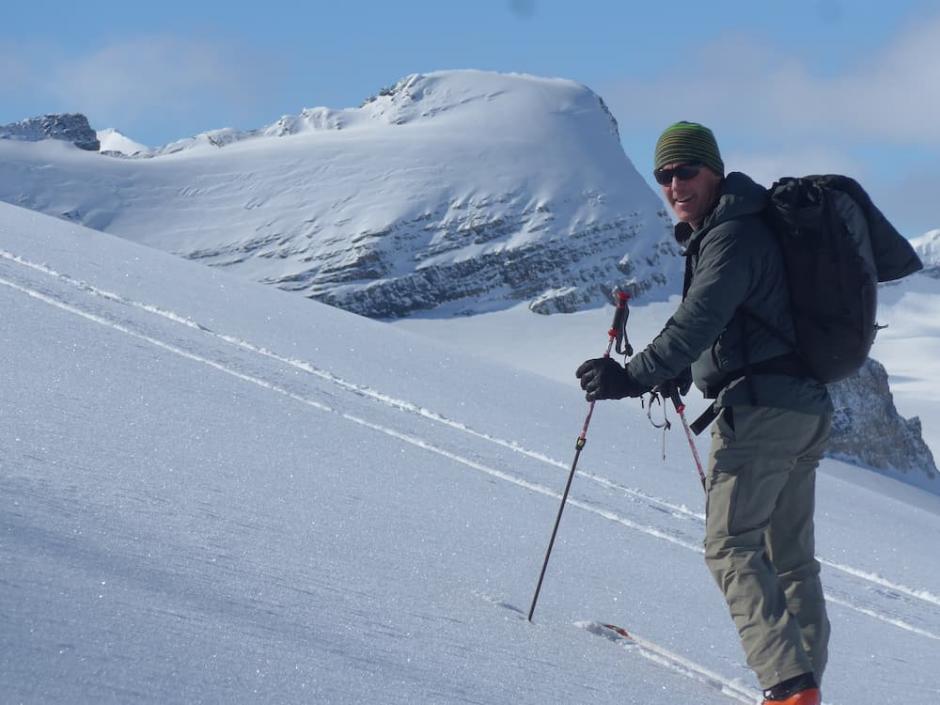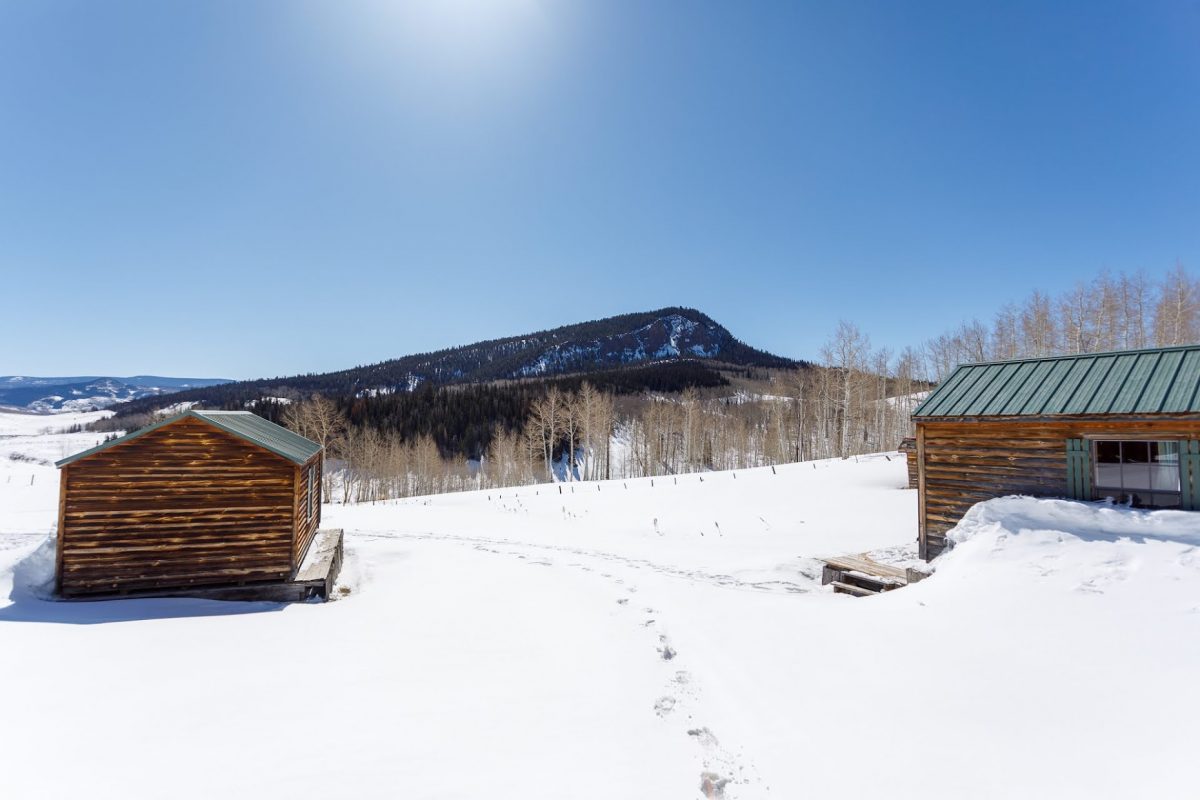
The Banff Centre Mountain Film and Book Festival will award Grant Statham its 2022 Summit of Excellence Award at next month’s festival. The Banf Centre writes the award recognizes “an individual who has made a significant contribution to mountain life in the Canadian Rockies.” Courtesy photo Banff Centre/Grant Statham.
The earnest transition into fall has been a ski bounty for some in Alaska, and something other in the PNW’s latitudes; despite the sun streaking lower and lower in the sky, bluebird days and higher than normal temps have reigned. That should be shifting, so we’ve heard, in a week or so. But, backcountry related news still happens. Here’s a brief rundown.
Avalanche Canada Webinar Series
Avalanche Canada will broadcast a free live webinar series beginning Oct. 19 (7-8 pm Pacific Time). According to Avalanche Canada, the series will focus on “various aspects of avalanche safety, geared towards different user groups.”
To kick things off, Wed. Oct. 19’s webinar is titled: Recognizing Avalanche Terrain and Trip Preparedness.
Summit of Excellance — Grant Statham
The Banff Centre Mountain Film and Book Festival will award Grant Statham its 2022 Summit of Excellence Award at next month’s festival. The Banf Centre writes the award recognizes “an individual who has made a significant contribution to mountain life in the Canadian Rockies.”
For those keeping abreast of avalanche safety, Statham is cited often in the literature. As a community, many of us who regularly access avalanche forecasts owe Statham a debt of gratitude for standardizing many of the products we rely on for creating our daily backcountry plan.
A Banff Centre press release states, “Statham is perhaps most recognized as a pioneer and leader in avalanche safety. Following the tragic avalanche deaths of 2003 at Roger’s Pass, he was responsible for conducting Parks Canada’s Backcountry Avalanche Risk Review and he subsequently developed and implemented the polices and regulations around Custodial Groups in the National Parks. At the same time, he led the development of the Avalanche Terrain Exposure Scale, North American Public Avalanche Danger Scale, Conceptual Model of Avalanche Hazard, and the AvalX public forecasting system, the main tools and resources still used by avalanche forecasters and in public avalanche bulletins in Canada and worldwide.”
Yosemite Overnight Big Wall Permitting
The debate over permitting access to wilderness, be it for the backcountry or big walls, is rife with devisiness.No matter where you stand on the issue, the fact remains, in some parts of the world, crowding is a real issue. Scarce resources like fresh powder, or, say, a crack system up El Cap, become more akin to “take a number” and wait your turn at the local deli than empty-space venues for a leave-it-all-behind adventure.
This is not an op-ed. And this is not to say that climbing regulations warrant backcountry skiing/riding regulations. This is to say, we are keeping our eyes on how Yosemite National Park regulates overnight big wall climbing in wilderness. (El Cap and other prominent walls in the valley, and YNP at large, are in designated wilderness.)
For 2021 and 2022, the National Park Service in Yosemite asked climbers to register for climbing permits (no quotas or limits on the number of permits available and they are free) for overnight wilderness big wall climbs. According to the NPS, “The permit process provides an opportunity to educate climbers on leave no trace climbing ethics and park regulations, and help climbing rangers quantify use patterns on big walls. The pilot aims to increase compliance with existing regulations (e.g., proper disposal of waste) and minimize impacts to wilderness character through improved education.”
The comment period is still open, and you can find a detailed piece on Climbing.com covering the issue. The NPS says by 2023, it will transition from the pilot program to “a long-term solution to address wilderness stewardship through management of overnight climbing on Yosemite’s big walls and other rock formations.”
Stay tuned.

Bluebird Backcountry will offer housing accommodations this season. This seems like news because it’s another way newcomers can access the sport and get more return on investment by staying multiple days at the area learning the backcountry craft. Hopefully, that makes you and all of us just a bit safer. Photo: Justin Wilhelm.
Housing at Bluebird Backcountry
We’re including an item having more to do with an immersive experience in a more controlled environment.
“Bluebird Backcountry is an inbounds backcountry ski area designed for learning and adventure in Kremmling, Colorado.” That’s poached right from the Bluebird website. And if you want to learn more about the outfit, WildSnow ran a feature you can find here.
We put a lot of information out there regarding sliding on snow in relatively remote places; this runs the gamut from gear reviews to trip reports. Here’s the bottom line for anyone involved with WildSnow; we want readers to be safe. For some, that means a gradual release of responsibility as one progresses in their backcountry aptitude. (We are all always learning, though.)
Bluebird Backcountry offers green backcountry skiers and splitboarders the kind of semi-curated environment where skills can be learned and honed. In other words, this learning philosophy allows for incremental skill building that builds towards independence. Time to cut to the chase; hoofing all the way to Rabbit Ears Pass (near Steamboat, Colorado) takes time, fuel, $$, and swimming with the rest of the Front Range salmon heading upstream on I-70. This season, Bluebird has some overnight accommodations with total beds of ~40. These include:
— hostel style housing
— private “basecamp” domes easily accessed from the parking lot (sleeps five guests)
— a minimalist cabin (sleeps two) near the parking lot
— and you can pay $25 to park/camp at the base area. Which, relative to our local hill, seems like a deal.
Bluebird Backcountry does not sponsor us. This seems like news because it’s another way newcomers can access the sport (it still costs money) and get more return on investment (you likely purchased gear) by staying multiple days at the area learning the backcountry craft. Hopefully, that makes you and all of us just a bit safer.
A Shift towards Recycled Aluminum: mountainFLOW poles
Some of you know mountainFLOW as the brand that pushed the marketplace towards more bio-friendly ski waxes. Their plant-based waxes are now only part of their product portfolio. The Carbondale company released a trifecta of fixed-length ski poles are produced from post-consumer recycled material, with the current aluminum feedstock composed of 70+% recycled. The company claims using recycled aluminum emits 95% less carbon emissions than constructing a pole from virgin aluminum.
The poles come in three flavors, ranging from ~$60 – ~$120. WildSnow will have a long-term review of their CorkPro pole (the ~$120 pole). Along with the recycled 7057-grade aluminum shaft, the pole features a cork grip made from recycled wine corks.
What we like: the idea of recycled aluminum as a choice for backcountry skiers/riders. We expect/hope this trend to catch on. You can also go grab a pair of used fixed-length poles at the local gear reseller if that is your jam.
While most of the WildSnow backcountry skiing blog posts are best attributed to a single author, some work well as done by the group.
